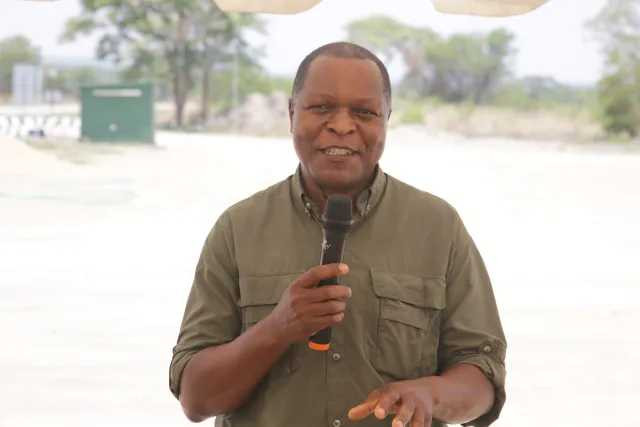
THE energy transition agenda has put the mining industry under immense pressure, as it races to meet the escalating demand for critical minerals, president of the Chamber of Mines of Zimbabwe (CoMZ), Thomas Gono has said.
Critical minerals are essential for powering the world's transition to a low-carbon future.
There have been calls for countries across the globe to transition from coal and other hydrocarbons to cleaner technologies in the electricity and transport sectors.
"The energy transition agenda places an enormous burden on the mining industry to meet the rising demands for minerals," he said in his address at the critical minerals symposium in Victoria Falls on Wednesday.
It is estimated that growth in copper, nickel, lithium and other key minerals needed to meet 2030 and 2050 greenhouse gas emission targets is huge.
Nickel demand is expected to reach 16,4 million tonnes per year against an estimated supply of 12,8 million tonnes per year.
Total nickel production in 2023 was only 3,4 million tonnes. The same can be said for copper where demand by 2050 is placed at about 60 million tonnes a year.
"These huge increases are projects for all the minerals considered critical for energy and transport transition," Gono noted.
- Mines propose fresh power import deal
- Motorist robbed while relieving self
- RBZ shifts blame to companies
- Forex retention policies ruin mines
Keep Reading
"If we add the dimension of demand from economic growth of developing countries to meeting their ambitions to improve the lives of their people, the demand is even higher.
"The implications of the high demand for minerals on the ability of the global mining industry to supply the global needs are exciting and mind boggling."
He said the mining industry will have to shift gears in terms of greenfield mineral exploration spending.
The targets for mineral exploration include many ecologically sensitive areas, countries that were considered no go areas, and geologically complex terrains.
"Some have suggested that the geopolitical tensions may increase as countries scramble for resources to meet national interests," he said.
Other dimensions include the pressure on mining companies to demonstrate greater commitment on environmental, social and governance.
Gono noted that decarbonisation initiatives are likely to result in high capital expenditures putting pressure on capital markets and shifting mining companies’ expenditure patterns towards initiatives that do not increase revenues.
"What are the implications for us in Zimbabwe? Can these emerging forces spell good tidings?" Gono said.
"We believe that with endowments in lithium, nickel, comer and PGMs among others, we can position ourselves to benefit from the huge anticipated demand for critical minerals.
"We must ride the wave of higher mineral exploration expenditure through policies, structures and systems that will attract those searching for minerals.
"Indeed, the Ministry of Mines has already embarked on the amendment of the Mines and Minerals Act, with such provisions on the mining cadastre, the strengthening of environmental provision to protect communities and the section on strategic minerals.
"We submit that these sectors can be improved significantly to ensure that capital flows to the Zimbabwean mining industry."










